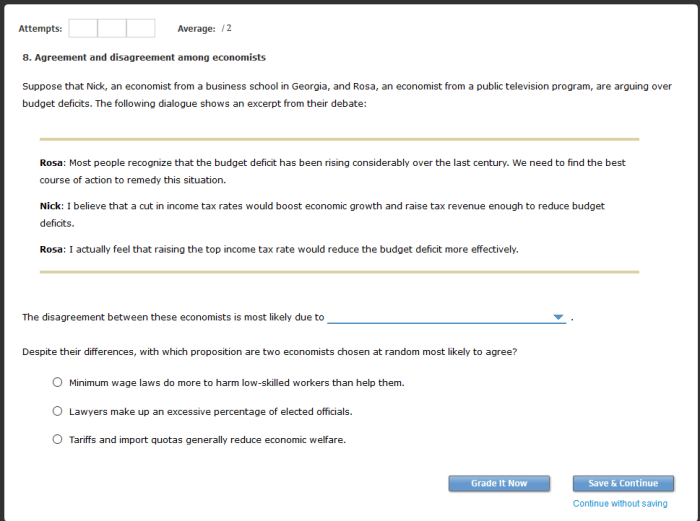In the realm of economics, despite their differences, notable economists often reach similar conclusions. This intriguing phenomenon, known as “despite their differences with which proposition are two economists,” highlights the underlying unity of economic thought. By examining the theoretical foundations, historical context, practical applications, and methodological pluralism that bridge diverse perspectives, we uncover the common ground that unites economists in their pursuit of understanding and shaping the economy.
Economic models, mathematical tools, and empirical data play a crucial role in reconciling opposing views. They provide a framework for analyzing complex economic phenomena and reaching consensus. Moreover, the historical evolution of economic thought has shaped our understanding of key economic principles and their application to policy.
1. Despite their Differences
Common Ground in Economic Thought

Economists, despite their diverse perspectives, often reach similar conclusions on fundamental economic principles. Notable economists with contrasting viewpoints include:
- John Maynard Keynes, advocate of government intervention, and Milton Friedman, proponent of free markets.
- Karl Marx, critic of capitalism, and Friedrich Hayek, defender of individual liberty.
Despite their differences, these economists shared common ground on principles such as the importance of supply and demand, the role of incentives, and the need for economic stability.
Theoretical Foundations: Bridging the Gap
Economic models play a crucial role in reconciling opposing views by providing a framework for analyzing economic phenomena. Mathematical and statistical tools allow economists to quantify relationships and test hypotheses, fostering consensus. Empirical data, collected through surveys, experiments, and observations, further shapes economic theories.
Historical Context: Evolution of Economic Thought, Despite their differences with which proposition are two economists
Economic ideas have evolved over time, influenced by historical events and societal changes. The emergence of different schools of thought, such as classical economics, Keynesian economics, and monetarism, has shaped economic policies.
Practical Applications: Impact on Policy and Decision-Making
Diverse economic perspectives have influenced policy decisions in areas such as fiscal policy, monetary policy, and trade. Reconciling different views in practical settings poses challenges but also presents opportunities for informed decision-making.
Methodological Pluralism: Embracing Diversity
Embracing methodological pluralism in economic research allows for a more comprehensive understanding of economic phenomena. Different research methods, such as quantitative analysis, qualitative analysis, and historical research, each have strengths and limitations. Combining diverse methodologies provides a more nuanced perspective.
Essential FAQs: Despite Their Differences With Which Proposition Are Two Economists
What is the significance of despite their differences with which proposition are two economists?
It highlights the underlying unity of economic thought, despite diverse viewpoints, and provides a framework for understanding how economists reach similar conclusions.
How do economic models contribute to consensus among economists?
Economic models provide a common language and framework for analyzing complex economic phenomena, allowing economists to compare different perspectives and reach consensus.

